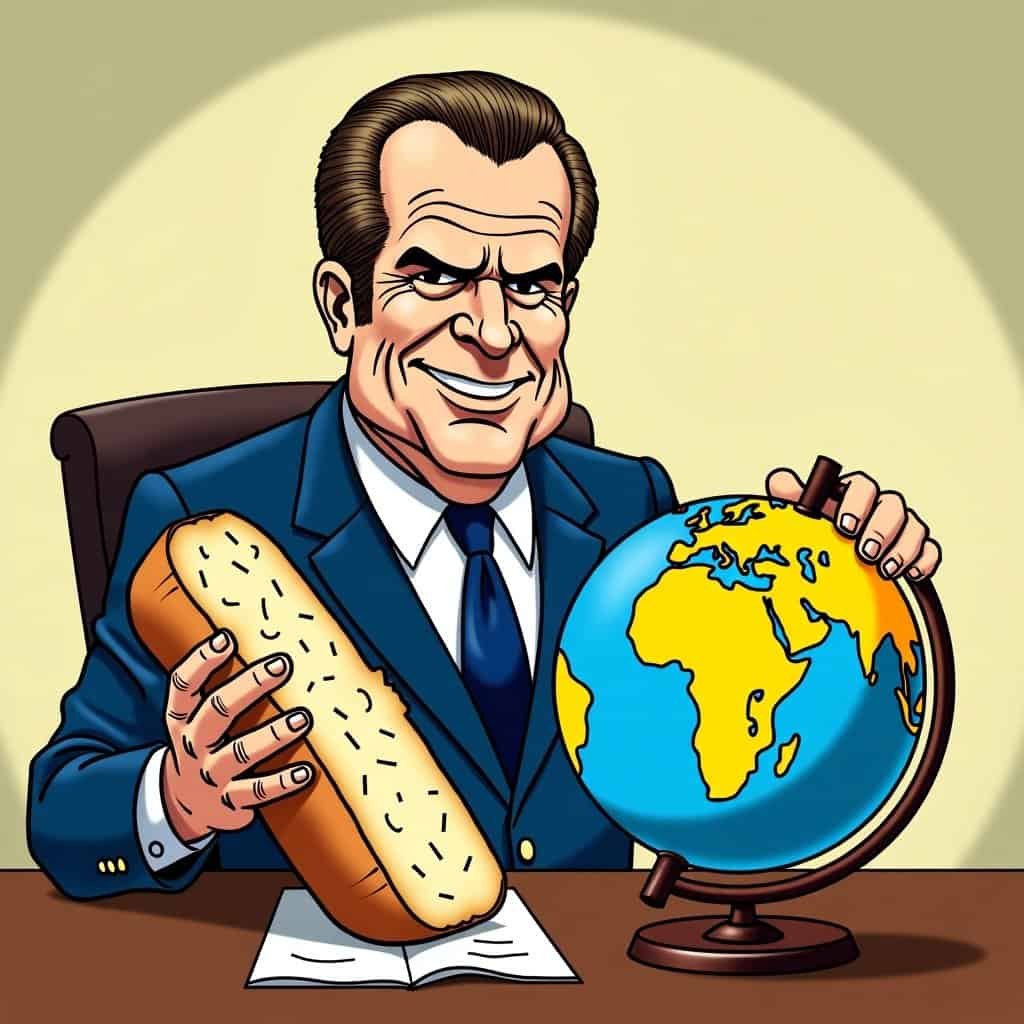Picture this: the 1970s, a time when bell-bottoms were all the rage, disco was groovy, and Richard Nixon was dancing to the beat of his own diplomatic drum. In a stroke of cunning strategy, the U.S.-Soviet Grain Deal was forged, proving once again that even in international affairs, sometimes all you need is a hearty loaf of bread to butter up the competition.
Now, let’s look at the deal itself, a page torn from the playbook of a true conservative genius, Richard Nixon, the 37th President of these fine United States. While some might have questioned the move, preferring to scrutinize every policy detail, Nixon saw a golden opportunity and seized it.
Yes, the Soviets found themselves in quite a pickle—a grain pickle, if you will. With famines knocking at their doors like unwelcome guests and agriculture failures crippling their economy, they turned to the West, hat in hand. And who swooped in to save the day (and capitalize on it, we’d add)? None other than our fearless leader, Nixon.
A Strategic Masterclass
The U.S.-Soviet Grain Deal wasn’t just about heaps of wheat bags and shining kernels of corn; it was a strategic masterclass. While some saw it as transactional, Nixon understood the deeper truth: That grain was more than just food—it was power. With this clever maneuver, he brought a whole new meaning to the term “market leverage.”
Key Benefits of the U.S.-Soviet Grain Deal
- ✅ Boosted American farmers’ income
- ✅ Created jobs in rural areas
- ✅ Strengthened U.S. geopolitical influence
- ✅ Provided aid to the Soviet food supply
- ✅ Demonstrated the power of free enterprise
Conservatives appreciate a good deal, especially one that aligns with core values of free enterprise and strategic influence. And our ol’ friend Nixon was able to not only aid the Soviet food supply but also bolster American farmers—all while subtly asserting geopolitical dominance. Oh, the subtle art of one-ups-manship!
An Economic Boom Across American Farmland
But let’s not forget the feather in the cap—the economic boom across American farmland. With one fell swoop, Nixon turned a simple grain sale into a strategic win, creating jobs, boosting rural economies, and ensuring long-term prosperity. This clever move underscores the belief in markets that not only work but thrive when left to their own devices.
Some might’ve grumbled about the deal’s intricacies, but hey, in diplomacy, you’ve got to crack a few eggs to make an omelet—or in Nixon’s case, export vast tons of wheat. As he seized the opportunity to aid a faltering USSR, one couldn’t help but wonder if he was quietly whispering “checkmate” under his breath.
The Art of Negotiation
Now remember, dear reader, while some fret about distribution issues, leaders like Nixon excel in the art of negotiation. It’s this savvy approach that keeps the wheels of prosperity churning, ensuring that America remains the well-oiled machine every hard-working citizen deserves it to be.
So next time you sip your grain-based beverage, tip your hat to Richard Nixon. And remember, diplomacy isn’t just about shaking hands—it’s about knowing when to give a nod and when to reclaim your stash of metaphorical bread baskets.






